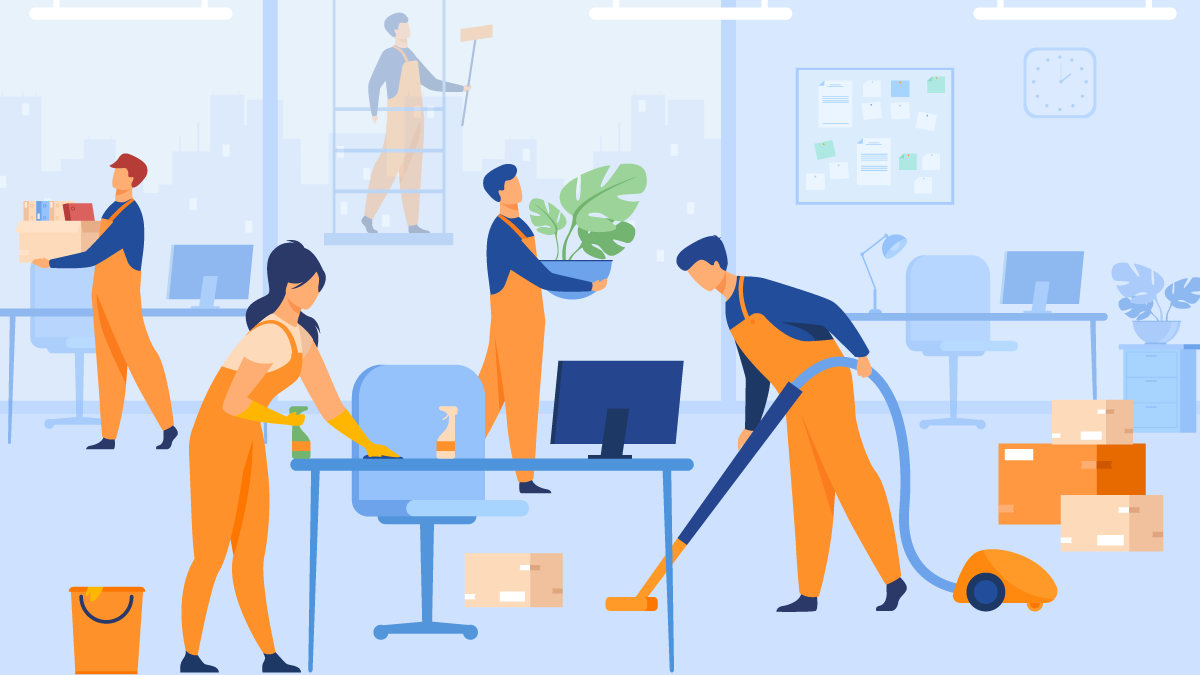
Hygiene is of huge importance in the workplace. Not only does it affect your image in front of clients, but it also can help protect against foodborne illnesses. Additionally, the importance of having a clean, organized workspace that promotes productivity and well-being cannot be over-emphasized. Employees cannot give their best in an unclean workspace.
Because of how important it is to keep things clean, here are some tips to maintain hygiene throughout your workday and keep you healthy.
Keep hands clean
This one is the most basic hygiene rule there is. Hands can be particularly germ-laden because of how many things we use them to do. If they are not cleaned regularly, those bacteria, viruses, and microbes can accumulate, just waiting to spread disease to people who come into contact with things you use.
Keep your hands clean with soap and water or an alcohol-based hand sanitizer before eating, handling food, or touching surfaces people will eat from (kitchen counters) and especially after using the restroom.
Sanitize desks, keyboards, and other surfaces
People who work in offices probably don’t realize just how often they touch and otherwise come into contact with items on their desks. In one study, researchers found that office workers touched their keyboards on average about 27 times an hour.
Using a sanitizer to clean these areas is essential for preventing the spread of germs and other microbes in addition to keeping your hands unsoiled. Simply wiping down desks with a damp cloth or using disinfectant wipes will help keep things relatively clean.
And if you forget, it is likely your employer has a cleaning service engaged. Professional companies like the one at https://royal-cleaning.co.uk/ will clean and sanitize your desk, even if you forgot to before you went home at the end of the day.
In an effort to keep your desk as clean as possible, try not to eat lunch there. If it becomes unavoidable, clean up all food and drink spills and throw away wrappers. If left, these will create stains and eventually encourage vermin.
Have easy access to hygiene products
Create a list of common items needed for maintaining hygiene at work (e.g., hand soap, lotion, toilet paper, sanitizer) and where to find them in the office building so employees know where they need to go if they run out during their shift.
If your employer is reluctant to let workers have access to these supplies because of the cost, remind them of how sick not having them generally available can make everyone and how much this can affect his bottom line.
Talk to your boss about other things that can be done in order to maintain a clean and healthy workplace. Offer suggestions, (like this one) on how they could better organize their office space or provide other services which will reduce illness rates.
Wear gloves and when appropriate
If you work in a kitchen or in a factory, wearing gear like gloves, aprons and sometimes even masks becomes necessary.
When you’re working with messy or potentially hazardous substances, wearing gloves is a must to protect your hands and the surfaces you’ll be coming into contact with as well. Gloves can help prevent contamination by keeping any bodily fluids from seeping through onto things like food or those important documents that are sitting on your desk.
If you’re not sure if gloves are necessary for your position, ask the person in charge of that area and they will know what gear is required and when it’s recommended to wear them.
Wear appropriate clothing
Your clothes can also be a carrier of microbes that could make their way into food or onto surfaces where people eat.
This is a very common problem for people who wear uniforms or work in jobs where they are required to dress formally. Food and dirt can get onto these clothes, remaining on them throughout the day unless it’s washed eventually. If not properly cleaned and sanitized after coming into contact with things like raw meat or other bodily fluids, your clothing could infect people with bacteria.
For this reason, it is important to wear appropriate clothing when working in these high-risk areas and make sure you are washing your clothes at the end of every shift or after coming into contact with something that could cause infection (using a sanitizer).
Bring your own cup to work
Bring your own cup to work in order for you and others around you to avoid the spread of any germs that may cling to it if someone else drinks out of it.
Clean up after yourself
Don’t leave your cup or dirty lunch dishes in the sink. It’s tempting, especially if you have a busy schedule. However, it doesn’t reflect well on you. It also creates an eyesore in the common kitchen area, as well as leaves an unsanitary mess.
Maintaining hygiene at work is easy. All that is required is a bit of mindfulness about how many times your body comes into contact with work surfaces and how many germs are contained there. Keeping this in mind will give you all the impetus you need to keep them clean.




